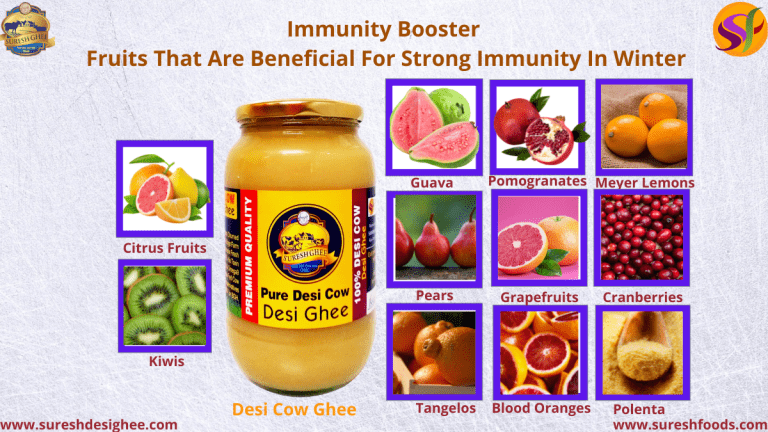Here are some of the healthiest winter fruits you should intake. Eat fruits to boost your immunity according to your mood. Make a sensible choice to stay away from piling on additional calories.
Try healthy fruit lists. Winter can be a time when one can focus on the facts related to foods that are healthy, tasty and keep you warm within as well. Moreover, the winter chills are prone to lower our energy level to a large extent.
This is a major reason why getting up for work in the morning also seems hard in winter. With the holidays coming over, so here are some fruits that will be useful for you to keep warm and boost your immunity in winter:
1. Pomegranates
pomegranates in their juice form are impactive from a heart-health perspective. Pomegranate juice is loaded with antioxidants. Drink a cup daily to keep you away from free radicals for “bad” LDL cholesterol.
Oxidized LDL participates in plaque buildup in the arteries. Drinking pomegranate juice might enhance the blood flow to the heart in people with myocardial ischemia, a severe health condition in which the heart’s oxygen flow is compromised because of the artery’s blockage.
2. Citrus fruits
Citrus fruits, like lemons, limes, oranges, and grapefruit, in the wintertime can add sunshine to the dreary chilled winter. Citrus fruits are packed with vitamin C-one medium orange offers more than 100 percent of your daily supplements.
The predominant flavonoid in fruits-hesperidin-is imputed with promoting “good” HDL cholesterol and reducing “bad” LDL cholesterol and triglycerides.
Read More : WHY DOES DESI COW GHEE IS THE MOST NUTRITIOUS CHOICE
3. Meyer lemons
This is a compound element between an orange and a lemon, the fruit drives off the metabolic rate! This fruit includes the d-limonene which is useful to develop the liver’s capability to accelerate metabolism-promoting immunities by close to 30 percent.
4. Tangelos
This combination of grapefruit-tangerines includes 60 calories and around 3-grams of fiber content, plus a massive amount of folate, vitamin C, and potassium to deliver you enough potency for winter workouts.
5. Blood oranges
The antioxidant-riched orange content known as anthocyanins delivers these fruits a bright tinge and is also useful in weight loss.
Blood-orange juice on daily intake offers the loss of close to 13 percent of their body weight during three months without any adverse conversion. But do not only drink juice; go for fiber-rich fruits to enhance your immunity level.
6. Polenta
This cream corn-hero dish is recognized for low-fat complex carbs that are enriched in fiber. Corn is an incredible source of several vitamins, like folic acid, vitamin C, and niacin.
It is an insoluble fiber that is useful in satiating you reducing cholesterol levels and helps to boost your energy level.
7. Guava
Guava is a tropical sweet fruit usually seen in winter transition that dispels the winter blues. This sweet, tropical fruit has a great taste, except vitamins A and C, magnesium, and potassium.
Certain variations have really large levels of antioxidants, which can prevent coronary heart disease. Use guavas instead of tomatoes for your homemade salad and deliver your winter meals a nutritious boost.
8. Pears
Pears are not loaded with vitamin C or A or even D but riched in dietary fiber. Fiber is recognized to help in digestion, reduce cholesterol levels, and is useful to boost your immunity power.
9. Grapefruits
This fruit is sweet, juicy, and delicious in taste. This seasonal fruit ripens or you can eat jam-packed with vitamin C. Vitamin C assists in bulk up your immune health.
Strengthen your bones, and cure your injuries faster, and grapefruit is loaded full of vitamin C, as well as vitamin A. This winter fruit can be topped with sugar to enhance its taste.
10. Cranberries
Supercharged in antioxidants and nutrients, cranberries are small fruits that pack a lot of immunity. Cranberries are useful to avoid the risk of cancers, heart Issues, and inflammation.
If you are wanting to stay away from catching a winter cold or life-threatening health issues, eat cranberries.
11. Kiwis
Oranges are famous for their vitamin C and bananas for their potassium values, but the kiwi has them beat in both content as well as offering vitamin E and K on top of it all!
Kiwis are flavorful, healthy fruit useful to balance your white blood cells to strengthen your immune system. You can add kiwis paired with any other winter fruit on this fruit list into a juicer for a healthy smoothie!
12. Papaya
Papaya can be consumed in raw form or juice form. A slice or two of ripe papaya, you can have for breakfast or as a snack 1-3 hours pre-lunch.
Papayas are loaded with dietary fibers, vitamins, minerals, and are high in antioxidants.
Here are a few of the health benefits of papaya:
- Lowers cholesterol
- Useful in weight loss
- Promotes digestion
- Boosts your immune health
Desi cow ghee:
Along with all these fruits, never forget to add desi cow ghee to ward off your chilled winter infections. Desi ghee will be used to treat your chest congestion, clogged nose and even keep you away from many health issues by boosting your immunity level. Here’s are reasons to add desi ghee in winter:
1. It promotes the digestion tract
Consumption of fiber-rich vegetables, using warm clothes, and low hydration level often leads to sluggish digestion & bloating. Consumption of desi cow ghee will prevent indigestion or keep the constipation issue at bay.
2. Keep you warm
Did you know eating ghee daily offers warmth to the body This is because of the fat present in cow ghee? Hence, adding desi ghee to your winter diet is as good as consuming a bowl of soup with a tablespoon of desi cow ghee.
Read More : Ayurveda and the Golden Goodness of Ghee
3. Immunity booster
Ghee is a good source of butyrate. It is great for boosting immunity and supporting the digestive system. A healthy gut and strong immunity are keys to staying healthy. To achieve the benefits of ghee for good immunity.
One should eat 100% verified cow ghee prepared with the traditional bilona method. This traditional way includes transforming whole milk into curds and churning it with a wooden bilona to take the butter which is later heated to get golden liquid pure ghee.
Conclusion:
All above winter fruits are the major keys to improving your immunity. These fruits are beneficial for strengthening immunity and maintaining good hydration levels in the winter season. The unique versatility of ghee is that you can use it externally as well as internally.
It can be used in cooking for boosting health values and at the same time, it can be helpful for skin dryness in winter and ghee massages improve your blood circulation in the body. Ghee in the diet is helpful in various ways during winter, it is a savior in many forms.
If you want to buy pure ghee or start eating desi ghee from this winter then buy it from our online store here: https://sureshfoods.com/
FAQ
Cranberries, a holiday dinner staple that goes beyond festive allure—they are complete with a nutritional punch. Cranberries minimizing cholesterol levels and alleviating the risk of developing coronary artery disease. It has an exceptional source of vitamin C, providing 14 mg per cup of whole, raw cranberries. For a delightful and nutritious twist, make sure to add a sprinkle of cranberries to jazz up your salads.
In the winter, pineapple stands out as a nutritional powerhouse, more like a citrus fruit. A single cup of pineapple provides an impressive 78.9 milligrams of vitamin C. Pineapple has anti-inflammatory and antioxidant properties that help in disease-fighting. It also provides advantages to both the nervous and digestive systems.
Why should we consume pears during winters? Pears hold notable importance during winter, not just for their delicious flavor but also for their nutritional benefits. A single pear supplies 5.58 grams of fiber, demonstrating it as an exceptional source of this necessary nutrient. Fiber delivers an important role in supporting the immune system by promoting the growth of beneficial bacteria. According to experts, an increased consumption of fiber contributes to a higher population of immune cells.
Moreover, fibrous foods, involving pears, contribute to sustaining a healthy weight, as evidenced by a randomized controlled trial. The satiety-promoting impacts of fiber can prevent overeating. To further add a winter twist to the goodness of pears, make sure to prepare warm recipes infused with spices such as cinnamon, as suggested by nutrition experts.
You may also like:







 WhatsApp us
WhatsApp us
Naveen m...